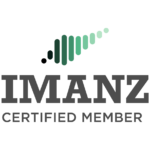Should I use Social Media
Should I use Social Media
Social media has become an integral part of our lives, and for businesses, it can be a powerful marketing tool. But is social media right for your business? It depends on your goals and objectives. In this blog post, we’ll explore the pros and cons of using social media for business.
Define what social media is and how it can benefit businesses
Social media is a powerful tool for businesses looking to engage with potential customers. Buyer personas can help identify who your target audience is, but social media listening is a great way to dive deeper and better understand their needs and preferences. By leveraging the power of social media, businesses can create content that suits their audiences’ tastes, increase their brand visibility, spark conversations and build relationships. Social media can also be used as part of a sales funnel – drawing in potential customers with interesting content or special offers can then lead them down the conversion funnel. In summary, with proper planning, implementation and management, social media can be hugely beneficial for businesses looking to build customer relationships and drive conversions.
Understand that social media should not be the only marketing tool used to drive sales
The importance of using the right mix of media to drive sales and grow your business cannot be understated. Social media, while certainly effective and important, should not be your only tool in the marketing toolkit. The time it takes to properly build a strong content campaign can take weeks or even months before you really start seeing results; analyzing which networks are best for your business, creating well-written and engaging content, developing tactics to reach out to potential customers – all these activities need to be considered when deciding on a digital strategy. The bottom line is that if you want sales conversions from social media efforts, don’t rely solely on it but brand yourself across many different channels to make sure you get maximum visibility.
Learn about the different types of social media platforms and which ones are most popular
It can be daunting to try to choose which social media platforms you should use for your business. Who is consuming what? You have to find that sweet spot in order to engage with the right audience. Understanding the different types of social media platforms and what they are used for is an important first step. Some of the most popular ones include Facebook, Instagram, Twitter, and TikTok, each with its own unique uses and target audiences. It’s also important to understand who is using each platform in order to capitalize on the most appropriate outlets for your business. Your goal should be choosing the most impactful platforms based on your reach and message delivery.
Find out how to create a social media strategy that will work for your business
Before creating a social media strategy to grow your business, it is essential to undertake a social media audit. This allows you to gain insights into who your target customer is and what social channels they engage in. Your social media audit should include an analysis of your current social presence, such as likes, follows and shares. It should also take into account such factors as current followers’ demographics (e.g., location, age and gender) as well as the specific needs, interests and behaviors of your customers or target markets. This helps you tailor content to suit them and can often lead to increased engagement with your social platforms which is key when it comes to reaching out successfully with a social media strategy.
Discover the best ways to measure the success of your social media campaigns
HTMG understands that the success of your social media campaigns should be measured regularly for maximum return on investment. With our years of experience, HTMG has the proven steps and tools needed to create, implement and optimize meaningful campaigns across multiple digital channels. We will develop a custom plan tailored to your company needs and make sure it reaches the right people with the right message at the right time. HTMG provides comprehensive reporting that monitors progress throughout each step of every campaign so you can measure results against goals based on key performance indicators. Talk to HTMG today to discover how we can help bring your social media campaigns to life in the most cost-effective way.
Overall, social media is a great way to connect with your customers and create a more personal relationship with them. However, it should not be the only marketing tool that you use to drive sales. There are many different types of social media platforms available, so make sure to choose the ones that are most popular with your target audience. Once you have chosen the right platform for your business, create a social media strategy that includes goals and objectives. Finally, don’t forget to measure the success of your campaigns by looking at metrics such as engagement rate and reach. If you need help creating a social media strategy or campaign, reach out to one of our team members today. We are here to make sure your social media campaigns are successful!
At HTMG, we understand that each business is unique and requires its own tailored approach for success. That’s why we take the time to learn about your individual goals, customer base and brand identity before creating a custom plan for you.

Should I use Social Media
Social media has become an integral part of our lives, and for businesses, it can be a powerful marketing tool. But is social media right for your business? It depends on your goals and objectives. In this blog post, we’ll explore the pros and cons of using social media for business.
Define what social media is and how it can benefit businesses
Social media is a powerful tool for businesses looking to engage with potential customers. Buyer personas can help identify who your target audience is, but social media listening is a great way to dive deeper and better understand their needs and preferences. By leveraging the power of social media, businesses can create content that suits their audiences’ tastes, increase their brand visibility, spark conversations and build relationships. Social media can also be used as part of a sales funnel – drawing in potential customers with interesting content or special offers can then lead them down the conversion funnel. In summary, with proper planning, implementation and management, social media can be hugely beneficial for businesses looking to build customer relationships and drive conversions.
Understand that social media should not be the only marketing tool used to drive sales
The importance of using the right mix of media to drive sales and grow your business cannot be understated. Social media, while certainly effective and important, should not be your only tool in the marketing toolkit. The time it takes to properly build a strong content campaign can take weeks or even months before you really start seeing results; analyzing which networks are best for your business, creating well-written and engaging content, developing tactics to reach out to potential customers – all these activities need to be considered when deciding on a digital strategy. The bottom line is that if you want sales conversions from social media efforts, don’t rely solely on it but brand yourself across many different channels to make sure you get maximum visibility.
Learn about the different types of social media platforms and which ones are most popular
It can be daunting to try to choose which social media platforms you should use for your business. Who is consuming what? You have to find that sweet spot in order to engage with the right audience. Understanding the different types of social media platforms and what they are used for is an important first step. Some of the most popular ones include Facebook, Instagram, Twitter, and TikTok, each with its own unique uses and target audiences. It’s also important to understand who is using each platform in order to capitalize on the most appropriate outlets for your business. Your goal should be choosing the most impactful platforms based on your reach and message delivery.
Find out how to create a social media strategy that will work for your business
Before creating a social media strategy to grow your business, it is essential to undertake a social media audit. This allows you to gain insights into who your target customer is and what social channels they engage in. Your social media audit should include an analysis of your current social presence, such as likes, follows and shares. It should also take into account such factors as current followers’ demographics (e.g., location, age and gender) as well as the specific needs, interests and behaviors of your customers or target markets. This helps you tailor content to suit them and can often lead to increased engagement with your social platforms which is key when it comes to reaching out successfully with a social media strategy.
Discover the best ways to measure the success of your social media campaigns
HTMG understands that the success of your social media campaigns should be measured regularly for maximum return on investment. With our years of experience, HTMG has the proven steps and tools needed to create, implement and optimize meaningful campaigns across multiple digital channels. We will develop a custom plan tailored to your company needs and make sure it reaches the right people with the right message at the right time. HTMG provides comprehensive reporting that monitors progress throughout each step of every campaign so you can measure results against goals based on key performance indicators. Talk to HTMG today to discover how we can help bring your social media campaigns to life in the most cost-effective way.
Overall, social media is a great way to connect with your customers and create a more personal relationship with them. However, it should not be the only marketing tool that you use to drive sales. There are many different types of social media platforms available, so make sure to choose the ones that are most popular with your target audience. Once you have chosen the right platform for your business, create a social media strategy that includes goals and objectives. Finally, don’t forget to measure the success of your campaigns by looking at metrics such as engagement rate and reach. If you need help creating a social media strategy or campaign, reach out to one of our team members today. We are here to make sure your social media campaigns are successful!
At HTMG, we understand that each business is unique and requires its own tailored approach for success. That’s why we take the time to learn about your individual goals, customer base and brand identity before creating a custom plan for you.



